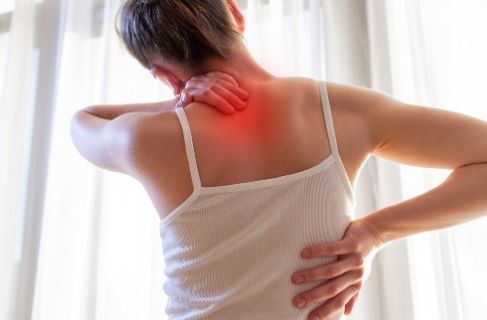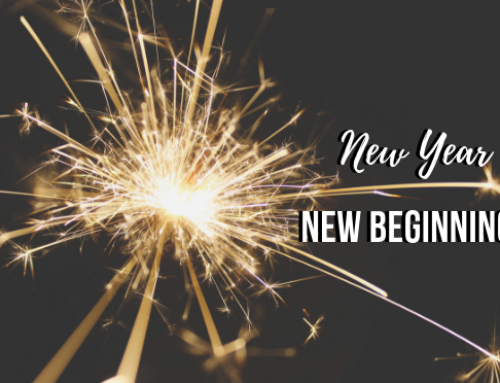Many individuals that suffer from addiction, substance use disorder, and co-occurring disorders also often suffer from chronic pain. In fact, many individuals with heroin or other prescription opioid addictions often started using painkillers prescribed by a doctor in an effort to treat chronic pain symptoms. As a society, we are well aware of the pushing of pain medication by Big Pharma, the ongoing investigations and arrests made at pain clinics nationwide, and the overall overprescribing of powerful opioid painkiller medications. However, while all these issues have brought us to where we currently are in America’s addiction epidemic, the issue that allowed these circumstances to take place and thrive, chronic pain, still exists.
Millions of Americans suffer from chronic pain. And while America’s addiction crisis has risen up around the issue of chronic pain medication management in America, the fact still exists that millions of Americans need solutions for their chronic pain issues. While it is easy to blame pharmaceutical companies for manufacturing and pushing pain medication, or to say that stopping the overprescribing of pain medication will help America’s addiction epidemic, the fact remains that there are millions of Americans suffering from chronic pain daily.
Additionally, the issue arises for those Americans who suffer from chronic pain but also live with a substance use disorder. Not every person who suffers from chronic pain is a person with a substance use disorder, so those people need access to pain medication when appropriate. But for those people that do have a substance use disorder and a chronic pain issue, what solutions are available to them that will help manage or treat their pain issues without exposing them to dangerous situations such as taking powerful opioids? Fortunately, there are some holistic approaches that can help manage or treat chronic pain issues. First, like any medical or health issue, it’s important to recognize that a comprehensive, team approach that includes all stakeholders in the life of the patient is needed. Second, just like with any treatment approach for someone with addiction or substance use disorder, transparency is vital, and a mind-body-spirit approach offers the most support.
Here are some holistic approaches to chronic pain management for individuals suffering from addiction:
Acupuncture
A form of treatment that involves inserting very small, thin needles into the skin at specific points on the body at various depths, acupuncture is an approach supported by research to help reduce or relieve pain.
Chiropractic
Chiropractic is a health approach where adjustments or manipulations are performed by a Doctor of Chiropractic to the spine, neck, and other parts of the body. The goal is to correct any potential alignment issues in order to ease pain and support the body’s natural ability to heal itself. When the body is properly aligned, pain is decreased.
Dietary Approaches
What we eat impacts us physically, so a good, balanced diet that directly effect how our bodies feel, and ultimately help reduce pain. Eating a diet of foods that have anti-inflammatory agents can help ease pain because they limit the inflammation throughout the body.
Exercise
Exercise and other fitness approaches helps individuals maintain physical fitness and overall health and wellness. Exercise can help reduce weight or support other healthy avenues, which in turn can help reduce pain issues.
Massage
Massage is the manipulation of the body’s soft tissues, commonly done by a masseuse or a licensed massage therapist. There are different therapeutic massage techniques and approaches that can be beneficial to individuals that suffer from chronic pain. Massage relaxes the muscles, tendons, and joints, as well as decrease stress and anxiety.
Physical Therapy
Physical therapy is an approach that used evidence-based kinesiology, exercise prescription, health education, mobilization, and electrical and physical agents to help treat both acute or chronic pain, as well as improve movement, mobility, and physical impairments. Physical therapy can help better posture and mobility, which can decrease pain, as well as give ongoing stretching techniques that individuals can use at home.
Stress Reduction
Types of stress reduction techniques can include breathing exercises, meditation, and other mindfulness approaches. These stress reduction approaches quiet the nervous system and lower stress, which in turn decreases muscle tension and can help manage pain issues.
Therapeutic Touch and Reiki Healing
Approaches such as therapeutic touch and reiki healing can help the body activate the self-healing process and decrease chronic pain management, as well as decrease or manage anxiety. Therapeutic touch is an evidence-based therapy that promotes balance and well-being. Reiki healing is a Japanese technique used for stress reduction and relaxation.
Non-Narcotic Pain Medications
Non-narcotic or non-opioid pain medications can be used to holistically treat chronic pain, but it’s important to recognize which are appropriate for someone with an addiction or substance use disorder. Many over-the-counter (OTC) medications can help manage pain, including medications such as ibuprofen (Motrin), acetaminophen (Tylenol), and aspirin. Some prescription options can include nonsteroidal medications and anti-inflammatories. Other non-narcotic medications that can help manage or treat chronic pain can include nerve pain medications and some antidepressants have demonstrated the ability to also help relieve mild-to-moderate chronic pain.
Yoga
Yoga is a group of physical, mental, and spiritual practices consisting of different postures and movements that can improve mindfulness and mobility. Yoga is both a physical exercise and a spiritual practice, that has benefits including pain reduction.
If you or someone you know needs help for addiction or co-occurring disorder issues, please give us a call. Maryland Addiction Recovery Center offers the most comprehensive dual diagnosis addiction treatment in the Mid-Atlantic area. If we aren’t the best fit for you or your loved one, we will take the necessary time to work with you to find a treatment center or provider that better fits your needs. Please give us a call at (410) 773-0500 or email our team at info@marylandaddictionrecovery.com. For more information on all of our drug addiction, alcohol addiction and co-occurring disorder services and recovery resources, please visit our web site at www.marylandaddictionrecovery.com.






